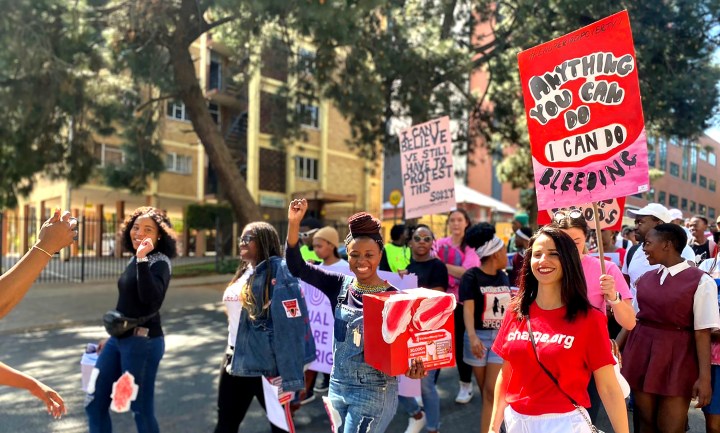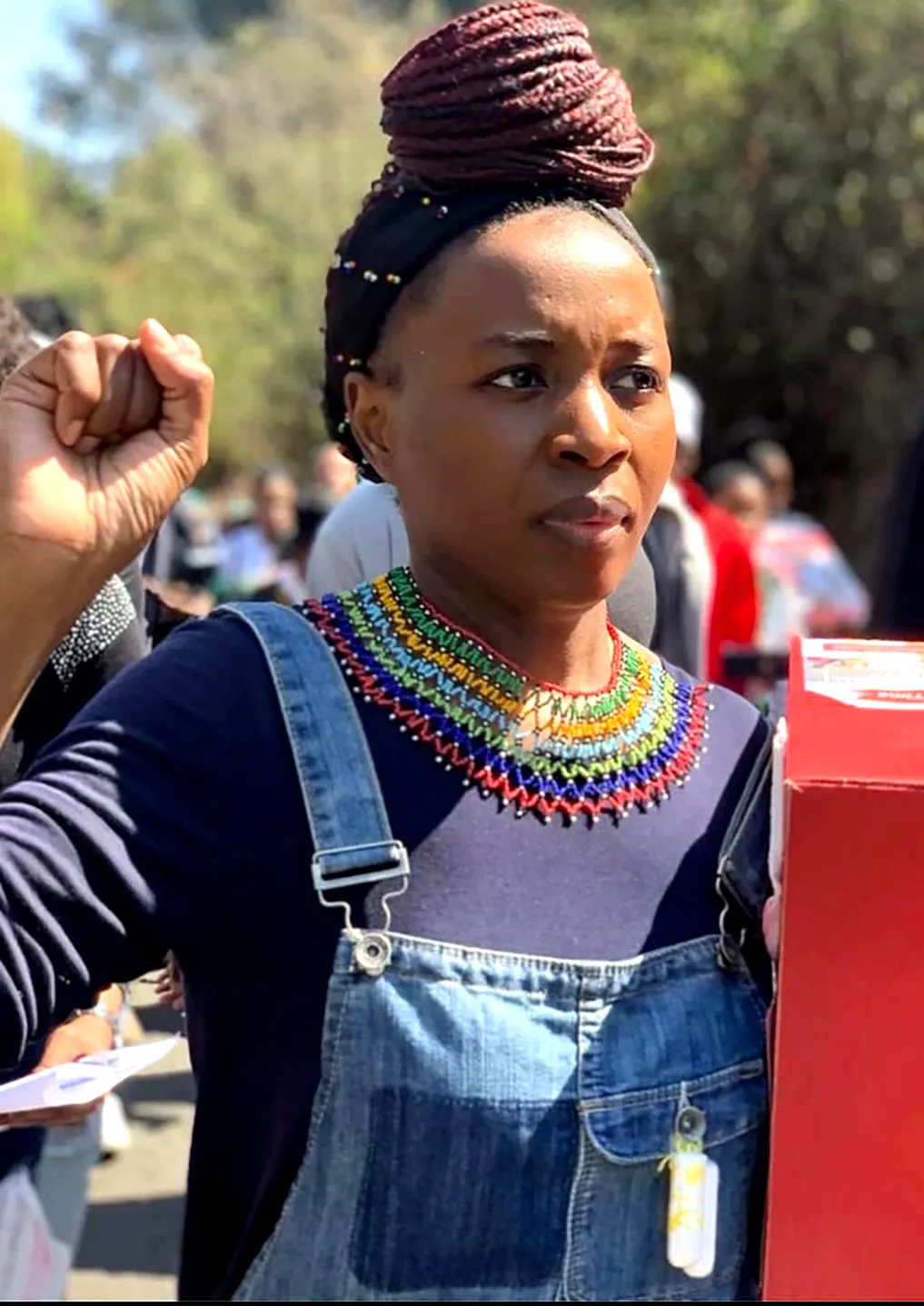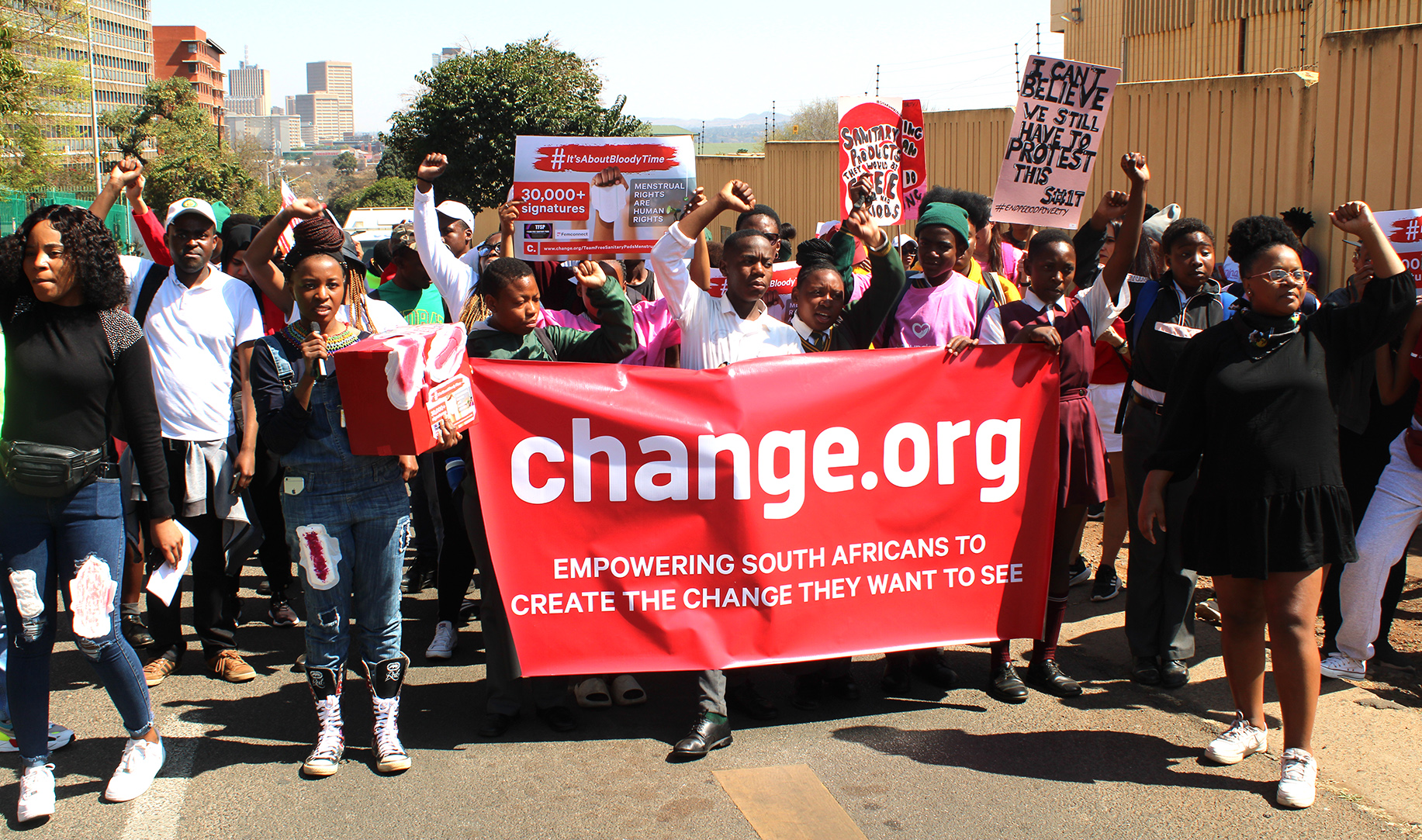PETITION FOR RIGHTS
Activists push for Menstrual Health and Hygiene Management Bill in drive to end ‘period poverty’

Women and girls across South Africa continue to suffer, in terms of health and opportunities, due to a lack of access to menstrual products and policy protections. Menstrual health rights activists, led by nonprofit Team Free Sanitary Pads, are putting pressure on the government to formalise its response through the creation of a Menstrual Health and Hygiene Management Bill.
Menstrual health rights activists are calling on the South African government to treat menstrual health as a human rights issue. In a petition started by the nonprofit Team Free Sanitary Pads (TFSP), the state is called upon to formalise its approach to the issue through the creation of a Menstrual Health and Hygiene Management Bill.
The petition, which has more than 40,000 signatures, and a memorandum of demands supported by more than 31 organisations were initially delivered to government representatives on 26 August 2022 during a peaceful march to the Union Buildings led by TFSP.
On 16 August 2023, after a year of no discernible progress, TFSP and its partners have formally petitioned the Portfolio Committee on Women, Youth and Persons with Disabilities, through Speaker of the National Assembly Nosiviwe Mapisa-Nqakula, seeking an urgent motion for a Menstrual Health Rights Bill. They are awaiting a response.
“One of the key factors that we feel is very important for a Menstrual Health Rights Bill… is that we establish structure in terms of getting buy-in from the public sector to invest in menstrual health and hygiene management,” said Nokuzola Ndwandwe, founder of TFSP.
“We… feel the Sanitary Dignity [Policy] Framework is just a vision board and it hasn’t been impactful, because there’s no legal obligation or anything that’s legally binding to hold either government… or civil society or the private sector accountable, so we’re also looking at accountability and transparency.”
The Sanitary Dignity Policy Framework of 2019 was formulated by the Department of Women to promote sanitary dignity and provide norms and standards for the provision of sanitary products to indigent persons.
Key areas of concern
TFSP and its partners are demanding changes be made on several fronts to reinforce menstrual rights. In the workplace, they advocate for transformative policies, such as menstrual health paid leave for women who suffer from chronic illnesses that are menstrual health-related.
Lucy Khofi, Wits University PhD candidate and founder of the nonprofit Women’s Health Ekklēsia, emphasised that the movement was not demanding paid leave for every person who menstruates, but rather seeking the formulation of policies that safeguard people with chronic illnesses. She also highlighted the importance of early access to quality care for these conditions.

Nokuzola Ndwandwe, menstrual health rights activist and founder of Team Free Sanitary Pads, marches to the Union Buildings in Pretoria on 26 August 2022. (Photo: Supplied)
“We’re seeing a lot of women having menstrual-related chronic conditions, such as adenomyosis, endometriosis, fibroids and all these hectic conditions. When one is diagnosed with that, access to care is really, really crucial… The health part, that’s where we lose a lot of women. Because if these conditions are not diagnosed earlier, it becomes a problem,” she said.
The founding of TFSP was driven by Ndwandwe’s own experience with a chronic menstrual-related condition. In 2014, she went to work despite experiencing severe period pain, and ended up needing to be admitted to hospital by her colleagues. She was diagnosed with endometriosis.
“At that point, I felt like it was time to actually deconstruct the narrative and speak about menstrual health and hygiene management, and educate both men and women… around [it],” she said.
Supporters of the TFSP petition want to see VAT scrapped on all menstrual products, since these are basic essentials, not luxury goods.
“I felt so embarrassed; I thought it would have an impact on my ability to apply for work in future and my career prospects. I imagine there are millions of young girls and women out there who probably have gone through the same thing, and menstrual health is probably a disqualifying factor for them being able to access… opportunities.”
Another concern of the menstrual rights movement is the crisis of “period poverty” in the country. Toko Masemola, deputy chairperson of the ANC Youth League in Tshwane’s Ward 58, is a supporter of the petition. He drew attention to the importance of accessible sanitary products.
“We need legislative changes so that these sanitary products can be accessible… for all… It’s absolutely important because it affects school attendance, it affects people’s dignity,” he said.

About 50 pupils and activists march under the campaign #it’sAboutBloodyTime to the Union Buildings on 26 August 2022 to demand government prioritise menstrual health and free sanitary pads. (Photo: Kimberly Mutandiro)
Earlier this year, an organisation called I Menstruate issued a report stating that 83% of girl pupils in South Africa did not have regular access to menstrual hygiene products at school and at home. One in four was found to miss school monthly due to lack of access to menstrual hygiene products and support during their periods.
Read more in Daily Maverick: 83% of girl learners in SA struggle to access menstrual hygiene products
In 2018, then Finance Minister Tito Mboweni announced that Value Added Tax (VAT) on sanitary pads would be scrapped from April 2019. Ndwandwe said supporters of the TFSP petition want to see VAT scrapped on all menstrual products, since these were “basic essentials” and not “luxury goods”.
“We want women to make use of any menstrual product that they feel comfortable with… and we want to ensure that all menstrual products are VAT-free… and also that there are no import duties levied on menstrual products,” she said.
“We need the South African government to allocate more budget funding towards eradicating period poverty, and we continue to push the government to commit towards [this].” DM





















 Become an Insider
Become an Insider
Comments - Please login in order to comment.